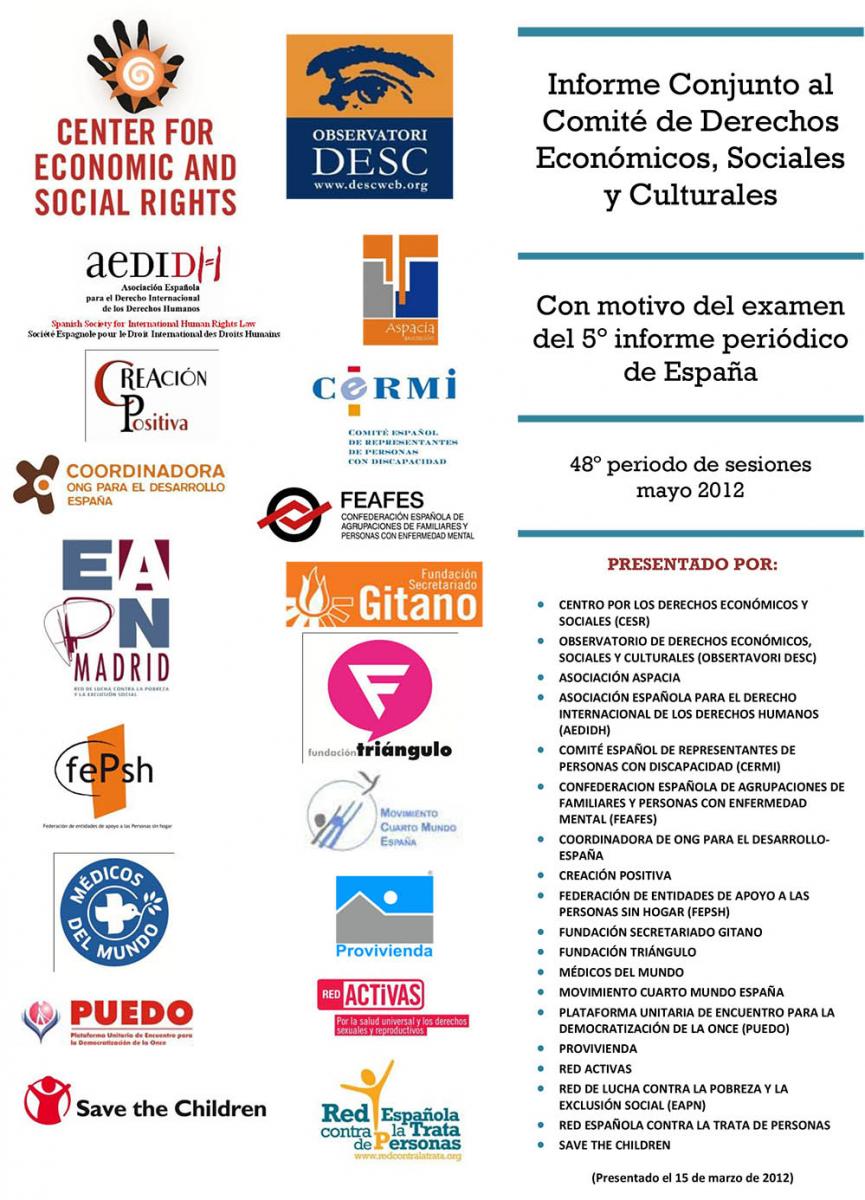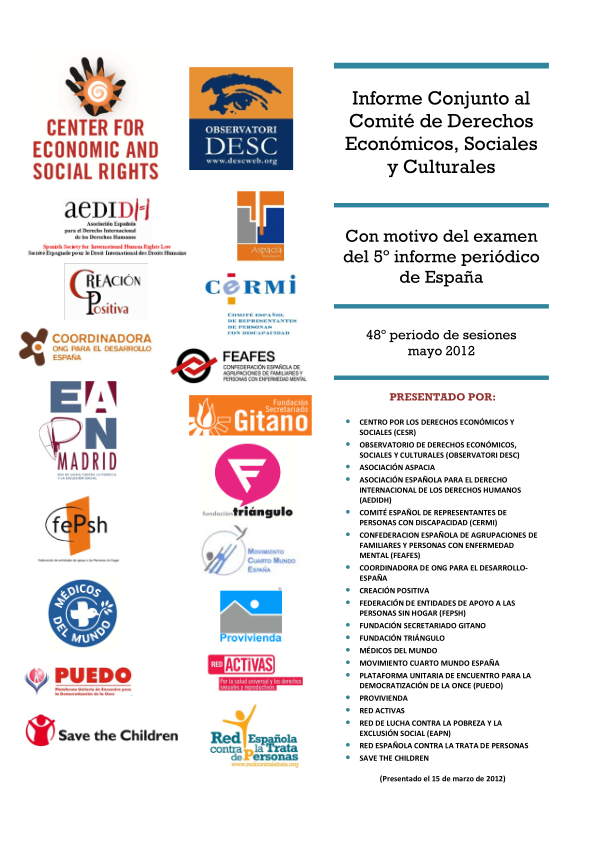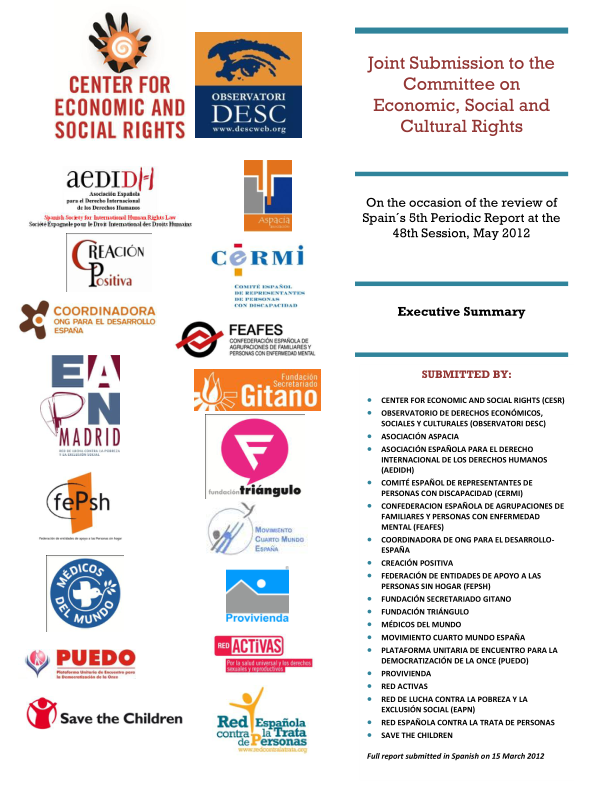 As the spectre of a double-dip recession continues to spread across Europe, economic and social rights are coming under increasing pressure. And the danger of policy measures designed to socialize the costs of the crisis have become painfully evident in Spain, where the impacts of successive austerity budgets have resulted in deteriorating outcomes across a broad spectrum of human rights indicators.
As the spectre of a double-dip recession continues to spread across Europe, economic and social rights are coming under increasing pressure. And the danger of policy measures designed to socialize the costs of the crisis have become painfully evident in Spain, where the impacts of successive austerity budgets have resulted in deteriorating outcomes across a broad spectrum of human rights indicators.
Spanish families have seen their wellbeing undermined by a series of reforms, implemented by both the recently-elected Popular Party and their Socialist Party predecessors. A detailed analysis of the retrogressions in economic and social rights in Spain is provided in a parallel report which CESR has coordinated with 18 civil society groups for the Committee on Economic, Social and Cultural Rights 48th session in May. (An English-language summary of the document can be found here). When Spain stands before the Committee, for the first time in eight years, it will be required to demonstrate that it has done everything possible to respect, protect and fulfill the economic and social rights of ordinary people.
The report elucidates the devastating impact austerity measures are having on human rights in Spain. With experts predicting that the unemployment rate - the highest in the developed world at 23 per cent - will continue to rise for the foreseeable future, workers there are becoming increasingly desperate. Indeed, their discontent made headlines around the world on March 29 when a general strike severely disrupted the transport and manufacturing sectors and close to a million people took to the streets of cities and towns across the country to voice their frustration at labor reforms. Youth unemployment is now approaching a staggering 50 per cent, and the situation of vulnerable groups is likely to be prejudiced again by the 2012 budget, which demands further cuts of 15 per cent in government spending in order to keep pace with deficit reduction targets. All the while, the impacts of unemployment, job precarity, reduced income and reduced social benefits on ordinary households are becoming ever more apparent, with over a million people being forced into poverty between 2009 and 2010. According to Eurostat figures, more than a quarter of the population is now are risk of poverty and exclusion - the figure is even higher among children - while inequality levels are rising faster than any other European nation.
As its appearance before the Committee draws near, the Spanish government must remember that it is required to take corrective steps immediately when retrogressions in economic and social rights are identified. It must also demonstrate that retrogressive measures have only been taken after the most careful consideration of all possible alternatives, and that these measures are fully justified with reference to the totality of the rights provided for in the Covenant and in the context of the full use of the maximum available resources. CESR, together with Amnesty International Spain and Observatori DESC, sent Prime Minister Mariano Rajoy a joint letter when he assumed leadership of the country earlier this year, to remind him of his human rights obligations in the light of the crisis.

